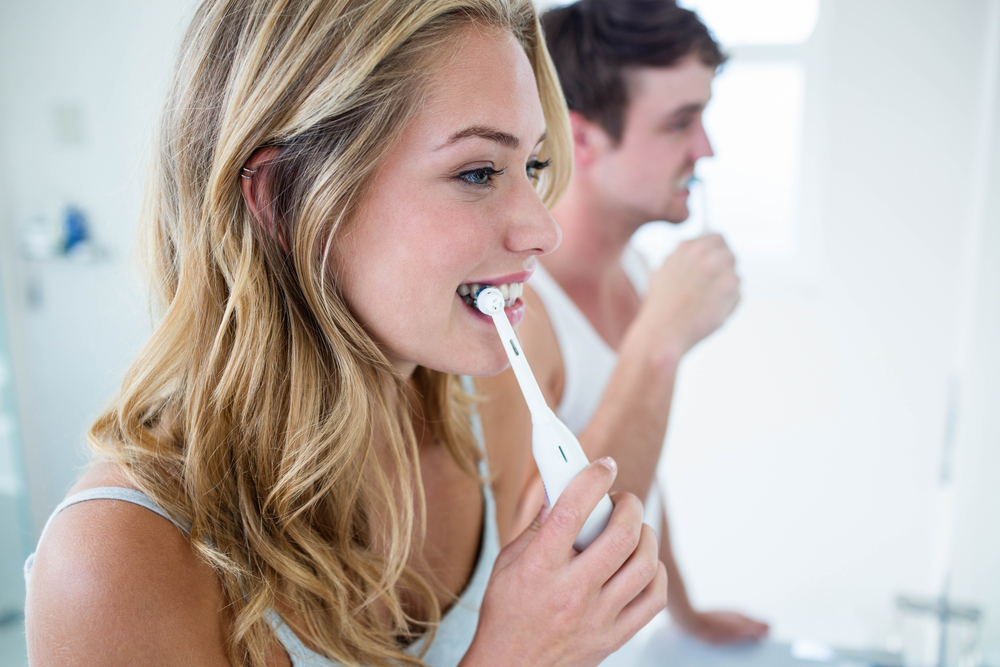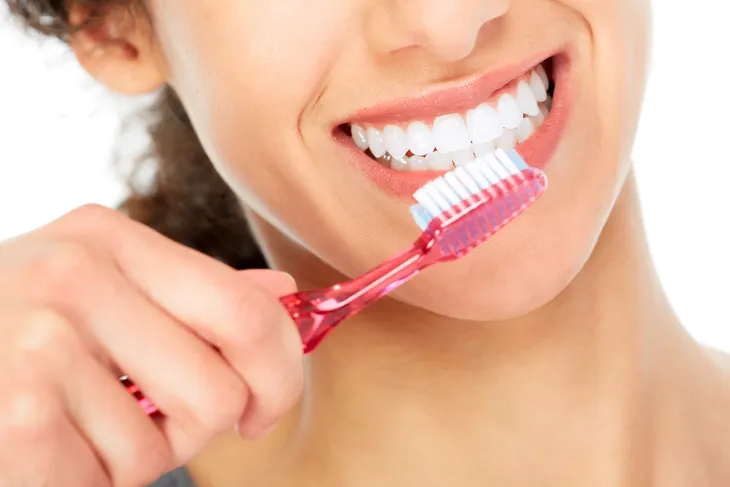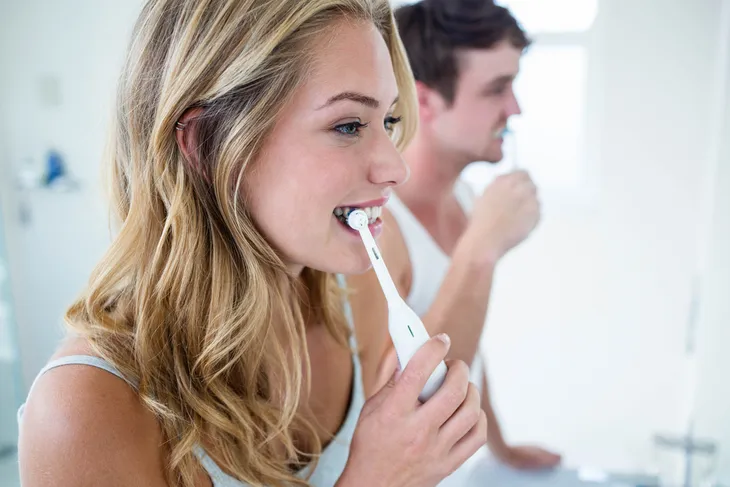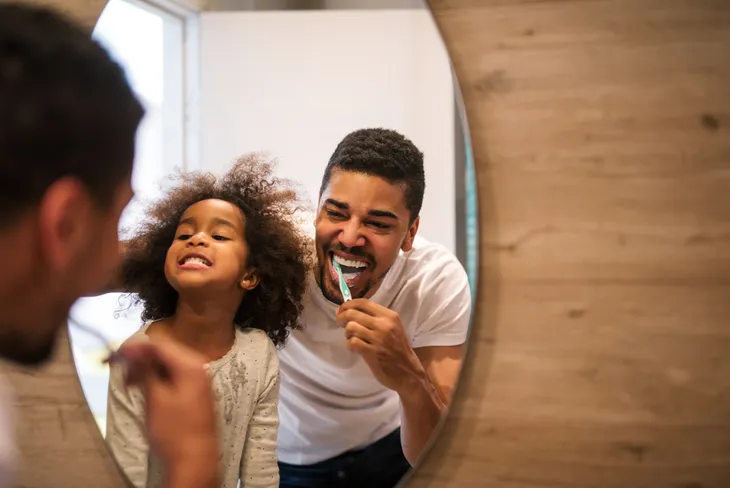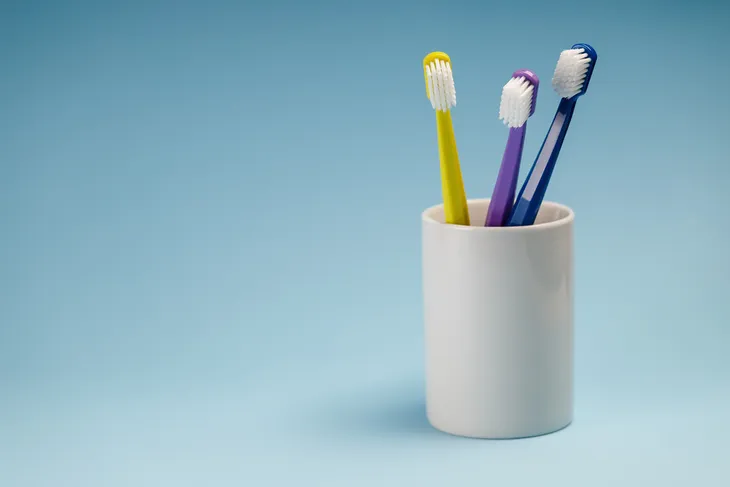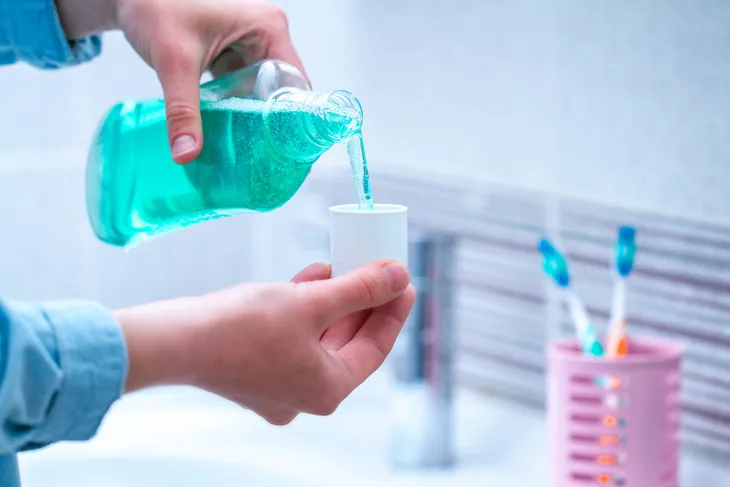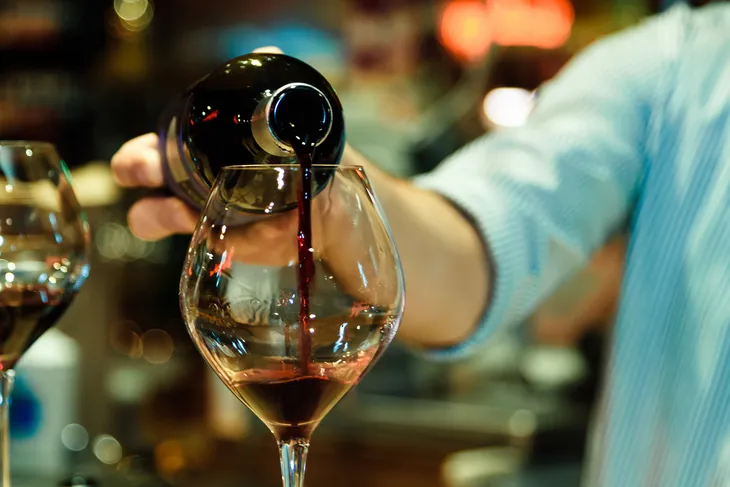Your dentist’s name may be up on the wall or on the outside sign at the dental office, but the hygienists are the ones on the front lines doing a lot of the heavy lifting…err, cleaning, and they have a lot of great advice to give to help keep your mouth in check.
They see a lot of teeth during a typical week, along with every problem in the book, so that’s why it’s important to follow their advice. Here are seven pieces of advice from hygienists to brush up on…
1. You’re Probably Holding Your Brush Wrong
KnowYourTeeth.com says you should be holding your toothbrush at a 45-degree angle against your gums, not flat against them. Instead of going for long sweeping motions of the brush, you should make short tooth-length passes in a gentle fashion, adds the source.
Make sure you get all the surfaces of the tooth—the outer, inner, and chewing surfaces, it adds. “Use the tip of the brush to clean the inside surfaces of the front teeth, using a gentle up-and-down stroke,” suggests the source.
2. Be Gentler
Your instincts may be to brush harder to get those deposits off your teeth, but you’re actually doing more harm than good by doing so, according to many hygienists. Huffington Post notes that while your teeth can take the pressure, your gums can’t—and you could end up exposing roots by going too hard.
This can lead to tooth sensitivity and other issues. Some dental professionals suggest using an electric toothbrush to even out the pressure along your teeth and gums, but if you’re into conventional brushes, use a soft-bristled one as the harder varieties could actually damage your gums.
3. Don’t Gloss Over Floss
Although there have been some recent reports to the contrary, The Canadian Dental Hygienists Association (CDHA) stands behind the effectiveness of flossing. The association says that plaque between teeth can lead to inflammation of the gums and eventually tooth decay.
The CDHA addresses the claims that flossing may be pointless, by noting, “many of the research studies used to support this statement involved too few test subjects or were carried out over a short time span—two to three months—which limits the utility of the findings.” Although, the association is open to more “comprehensive research” on the subject before suggesting anyone puts away their floss.
4. Don’t Rush the Brush
KnowYourTeeth.com says that many people just don’t give their teeth enough time when they’re brushing. The source notes if you usually brush with the radio on (in the morning and night), brush for one full song before rinsing.
In case you were wondering, that’s about 3-minutes, adds the source. You may think you’re brushing for that long now, but most people are actually brushing for less than 1-minute, according to the site. “This is not long enough to reach all areas of the mouth and scrub off cavity-causing bacteria,” it reads. Use a timer if you don’t want to listen to music.
5. Change Brushes Regularly
Your dental hygienist probably gives you a little baggie at the end of your cleaning with a new toothbrush in it—so use it. EverydayHealth.com explains that your toothbrush should be swapped every 3-months, which is about half the time between the average visit to a dental office.
However, you should be able to tell by looking at the bristles on the brush to know when to throw it out—if the bristles look like your hair when you wake up in the morning (in all directions), then consider getting a new one. Children’s toothbrushes may wear out more quickly (and kids can have a tendency to chew on them).
6. The Rinse is a Cinch
Even if you follow all the proper brushing techniques and use floss, you should still use a proper mouthwash as the last step after those first two things, say most hygienists.
123dentist.com notes you should sip a small amount of mouthwash and swish it around your entire mouth for a good 30 to 40-seconds (use a timer if you need to). Whatever type of rinse you use, do yourself a favor and don’t swallow it at the end—spit it out! You may also want to consider alcohol-free rinse to avoid the “burn,” and it’s generally considered safer for kids in case a little is accidentally ingested.
7. Avoid Certain Foods and Beverages
Speaking of alcohol, it might make you feel better about yourself for brief periods of time, but you’re not doing your teeth any favors. Healthline says that alcohol dries out your mouth, which reduces the effectiveness of saliva from washing away food particles.
It should also go without saying to avoid too much candy (the site mentions sour candies specifically because of acidity), bread (that can end up as sugary paste between teeth), potato chips (because of starch that can feed bacteria), and even dried fruits (because they’re sticky and sugary, so rinse with water after).
